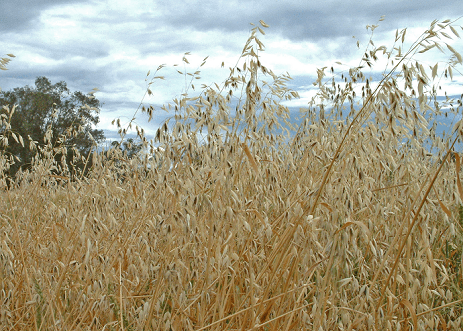THE age-old farming menace, black oats, is rearing its head again as the weed of cereal and chickpea crops develops resistance to many of the herbicides that have kept it in check for the past few decades.
Speaking at the Crop Consultants Australia (CCA) cropping solutions seminar at Narrabri in north west New South Wales, Australian Herbicide Resistance Initiative (AHRI) northern extension agronomist, Paul McIntosh, said black oats – which are also commonly known as wild oats – were “an old and costly problem”.
“They had trouble with black oats in South Australia more than 100 years ago. We have been dealing with the problem for a long time,” he said.
Mr McIntosh said while strategic management techniques in combination with herbicides had been used to control the troublesome weed in earlier times, in more recent years there had been an over-reliance on herbicides which had led to the emerging problem of herbicide resistance.
He said producers had relied on a range of herbicides from Avenge and Carbine back in the 1970s through to Mataven in the ’80s, then onto Topik and Achieve in the ’90s, and Verdict.
“We have been using those fops, dims and dens for a long time and they are starting to fail. We are getting wholesale black oats resistance to the fops, dims and dens across the board. Also, there is resistance to a lot of the residual herbicides,” he said.
“There is an ‘alphabet’ of herbicide resistance now in the northern farming zone to the two species of black oats we have, Avena fatua and Avena ludoviciana.”
Mr McIntosh said black oats, being a hexaploid, had been slow to develop resistance, but the tipping point had been reached where there would soon be major control failures to post-emergent chemicals.
“We have been lucky. But we are going to run out of luck very soon using the suite of post-emergent herbicides we have and expecting to control black oats in wheat, barley and chickpeas,” he said.
To head off the threat, Mr McIntosh said growers needed to adopt a combination of tactics that included crop management techniques and alternative chemistries.
“In the 1960s and 1970s there was a lot of research data that suggested narrowing the row spacings and increasing the plants per square metre of your wheat or barley was a great way to reduce black oats. We’ve forgotten about that and have, instead, been relying on herbicides,” he said.
“Instead of using one tactic only, we probably need to put some residuals down, like going back to the old Avadex. That takes care of the early black oats which are the major competitors for wheat, barley and chickpeas. It won’t be perfect, but it is another group of chemicals apart from the Group As.
“So, go back to the residuals and go back to the cultural methods of narrow row spacing, increasing the plant numbers and reducing the weed seed bank over a period of years so you don’t end up with a pile of black oats in your paddocks.
“In the north we have always done rotations. If you have a bad black oat paddock you rotate into summer crop for two or three years, put Atrazine on and use it like a ‘vacuum cleaner’ for the black oats.
“It works well, but we need more. Each black oat plant can produce 200-300 seeds per plant and they have a dormancy of three to five years in the soil, so one year of rotation with an alternative crop and alternative chemistry like Atrazine is not enough.”





I was looking up black oats because 2 years ago we went to the royal Adelaide show we were given some to plant at the ag learning centre. Having come across them In my daughter’s room today, I wondered what they are and when do I plant….. seems never would be a good time.